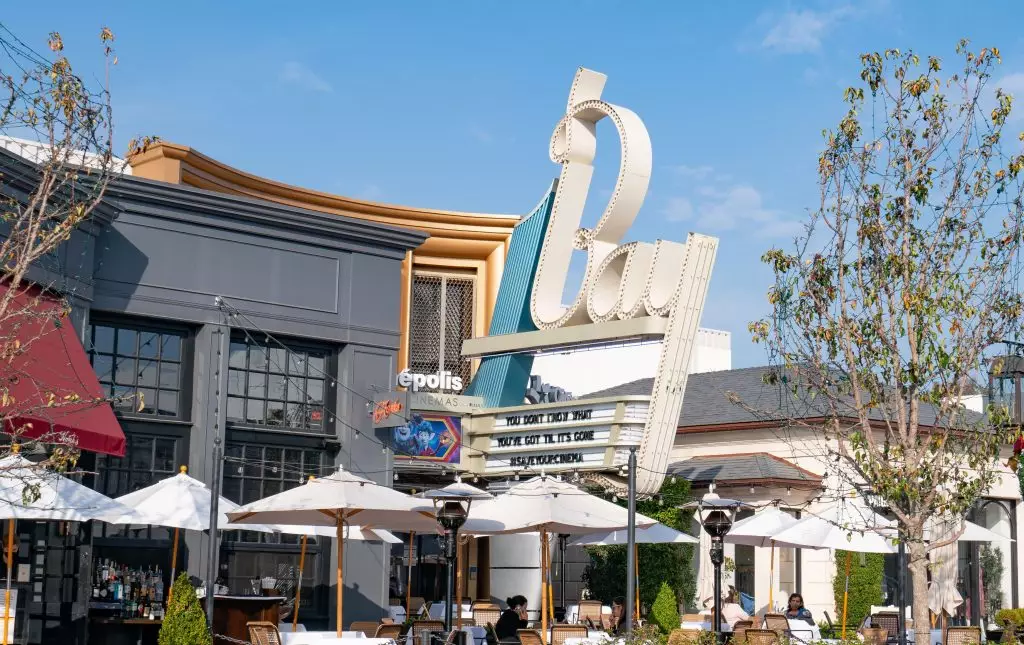The Pacific Palisades wildfire has wrought havoc across multiple sectors in Los Angeles, the unrivaled capital of the U.S. box office. With an outbreak of this intensity, it is no surprise that a significant number of cinema venues have temporarily closed their doors, disrupting both the industry and movie-goers alike. This article explores the ramifications of this wildfire on the cinema landscape in Los Angeles, along with its implications for the film industry and community.
In the wake of the wildfire, reports confirm that around ten cinema locations across Los Angeles have closed. Notably, some of these closures include well-known venues like the AMC Americana located in Glendale, the AMC Universal City Walk, and the Regal Sherman Oaks. The AMC Topanga 12, iPic Pasadena, and Regal La Canada 8 have joined the list of suspended operations as well. The timeline for reopening these cinemas remains uncertain, leaving patrons in limbo and broadcasters apprehensive regarding their box office returns.
These closures are not just numbers; they encapsulate a bigger phenomenon regarding audience accessibility to the cinematic experience—an essential aspect of American culture that offers both escapism and communal enjoyment. The theaters’ shuttering signifies a decline in local engagement, highlighting the delicate relationship the industry maintains with its environment and society.
The Bay Theater, a historic landmark located at the heart of the wildfire’s impact zone, stands as a focal point for both local history and modern cinema. Owned by real estate developer Rick Caruso, who is simultaneously running for mayor, the theater has become a beacon of concern. While sources indicate that the venue itself has been spared from significant damage, the shopping center it is situated in has witnessed extensive destruction, with Caruso describing the area as “fully engulfed” in flames.
The uncertainty surrounding the fate of the Bay Theater raises additional questions about the broader implications of such disasters on cultural heritage and the responsibility of leaders in safeguarding community landmarks amidst crises. While Caruso continues to navigate both his business and political aspirations, the theater’s future may lead to introspection among constituents regarding the relationship between commerce and community wellbeing.
The wildfire has not only shuttered theaters; it poses a formidable challenge to the box office, which reported over $681 million in revenues last year and constitutes approximately 8% of the total domestic box office market. In a week marked by fires and evacuations, the sentiment for moviegoing remains bleak. Potential releases like Lionsgate’s “Den of Thieves 2: Pantera” face a tough battle predicting revenue between $11 million and $13 million. Compounding this issue is the competition from established holiday films such as “Mufasa” and “Sonic the Hedgehog 3,” each expected to draw roughly $12 million as they navigate the fourth weekend of their runs.
Although some theaters like AMC Burbank and AMC The Grove remain operational, their continued success heavily relies on consumer confidence and foot traffic, both of which are currently affected by the unfolding emergency. The tendency for audiences to avoid crowded spaces—often exacerbated under evacuation alerts—compounds the risk of a lackluster box office performance.
The wildfire’s reach extends beyond theater closures to industry events that have recently faced cancellations. Notable premieres for Universal’s “Wolf Man,” Paramount’s “Better Man,” and additional projects have been halted due to safety concerns for cast, crew, and attendees. Moreover, the Critics Choice Awards, set to unfold at the Barker Hanger near the Santa Monica Airport, has been rescheduled for January 26th. Such interruptions echo throughout the industry, revealing how quickly and profoundly external factors can impact the entertainment landscape.
The Pacific Palisades wildfire serves as a stark reminder of the vulnerabilities embedded within the film industry and its interconnectedness with community health and safety. As Los Angeles grapples with the aftermath of this disaster, stakeholders in cinema—from developers and distributors to audiences—must come together to reflect on how to fortify and safeguard the cultural institutions that enrich life in this vibrant city. Disaster preparedness, community resilience, and a commitment to restoration are paramount as the industry seeks to navigate these tumultuous waters and protect its artistic haven in the years to come.
